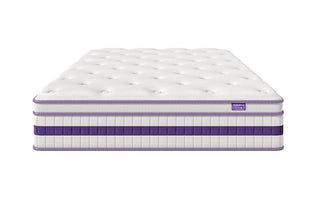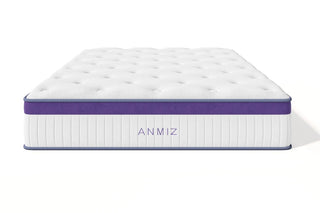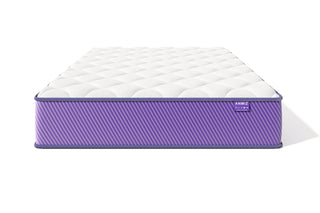Many people notice that after a poor night of sleep, the world looks heavier. Tasks feel harder, patience runs short, and stress rises quickly. This is because sleep and mental health are deeply linked. Quality sleep supports emotional balance, cognitive performance, physical recovery, and long-term psychological stability. When sleep suffers, mood and mental resilience decline. Understanding this connection offers a powerful path toward improved well-being.
- 1. Sleep and Mental Health in Daily Life
- 2. The Biology Behind Sleep and Emotional Balance
- 3. Sleep and Mental Health Conditions
- 4. Cognitive Effects of Poor Sleep
- 5. Social and Relationship Impacts
- 6. Work Performance and Everyday Productivity
- 7. Improving Sleep and Mental Health Together
- 8. Diet, Exercise, and Sleep
- 9. Technology and Modern Sleep Challenges
- 10. Sleep Cycles and Mental Restoration
- 11. Case Example: Mood Before and After Sleep Change
- 12. Practical Sleep Strategies for Emotional Wellness
- 13. Building a Personalized Sleep Plan
- 14. FAQs
- 15. Conclusion
Sleep and Mental Health in Daily Life
Sleep affects mood regulation and emotional control. When sleep quality drops, stress responses intensify. Even one short night can reduce positive emotions while amplifying frustration. However, consistent rest strengthens the ability to handle challenges. Many mental health conditions either worsen due to sleep disruptions or contribute to sleep difficulties.
Improving sleep is not only about rest. It is a form of mental health care. Healthy sleep routines enhance focus, memory, and emotional recovery. Meanwhile, chronic sleep loss can impair decision-making and slow cognitive processing.
Sleep supports the brain’s emotional centers. During deep sleep, the brain processes memories and feelings. This helps restore balance between rational thinking regions and emotional response centers.
The Biology Behind Sleep and Emotional Balance
During sleep, the brain clears waste proteins and resets key neurotransmitter systems. These natural processes help maintain stable mood and psychological clarity. Serotonin and dopamine levels fluctuate with circadian rhythms. If sleep cycles break down, these mood-related chemicals fall out of balance.
Deep sleep also reduces cortisol, the stress hormone. Without enough deep stages, cortisol remains elevated. This encourages anxiety, irritability, and mental fatigue. REM sleep plays another key role. It is where emotional memories are sorted and integrated. If REM sleep is shortened, emotional stress remains unresolved.
Therefore, improving sleep quality is a direct intervention in emotional healing. When the mind rests well, thinking becomes clearer. Reactions become more measured. Fatigue fades, and motivation returns.
Sleep and Mental Health Conditions
Anxiety Disorders and Sleep
Anxiety and sleep influence each other in both directions. Anxiety can prevent sleep by keeping the mind alert. Poor sleep then intensifies nervous responses, making anxiety symptoms harder to control. Over time, the brain associates nighttime with worry. This can create chronic insomnia if not addressed carefully.
Depression and Sleep
Depression often disrupts sleep patterns, leading either to insomnia or oversleeping. When sleep remains inconsistent, mood stabilization becomes more difficult. Adequate sleep increases emotional resilience, which is especially necessary during recovery from depressive episodes.
PTSD and Nighttime Disturbances
People with trauma histories may experience nightmares or fragmented sleep. REM sleep can trigger vivid emotional processing. Gently improving sleep habits can support trauma healing.
Bipolar Disorder and Sleep Rhythm Stability
Sleep schedule consistency is a core tool for stabilizing mood cycles. Even small disruptions can trigger shifts in energy and thought patterns.
Cognitive Effects of Poor Sleep
Lack of sleep can impair memory formation and learning. Without sufficient rest, the brain struggles to store new information. This impacts academic performance, work efficiency, and daily problem-solving.
Attention becomes harder to maintain. People with sleep issues often report mental fog, difficulty concentrating, and slower reaction times. These impairments can affect judgment and increase mistakes.
Yet after a week of consistent sleep, cognitive sharpness improves noticeably. Clarity returns, emotional patience rises, and motivation strengthens.
Social and Relationship Impacts
Sleep influences how we communicate. When rested, individuals react with empathy and patience. Without sleep, irritability increases. The ability to interpret social cues declines. Everyday misunderstandings grow into conflicts more easily.
Healthy sleep enhances social confidence. It supports emotional expression and helps sustain stable interpersonal bonds.
Work Performance and Everyday Productivity
Fatigue decreases motivation. It makes even simple tasks feel overwhelming. Over time, this leads to procrastination, reduced creativity, and increased stress.
Rested individuals solve problems more quickly. They maintain productivity with less effort. Sleep improves discipline and self-control, which are necessary for building habits and pursuing long-term goals.
Improving Sleep and Mental Health Together
Creating Sleep-Supportive Routines
- Maintain consistent sleep times.
- Keep lights dim at night.
- Limit screens before bedtime.
- Use calming evening rituals such as reading or gentle stretching.
Consistency signals the brain to shift naturally into rest mode.
Managing Stress During the Day
Stress management improves nighttime rest. Breathing exercises, exercise, journaling, or mindful activities help release tension before bedtime. Reducing caffeine or alcohol also helps stabilize sleep patterns.
Strengthening Mental Health Through Professional Support
Therapists, psychologists, and psychiatrists provide tools for emotional regulation and habit building. Cognitive behavioral therapy for insomnia (CBT-I) is particularly effective for restoring sleep balance.
Diet, Exercise, and Sleep
Balanced nutrition supports neurotransmitter function. Foods rich in magnesium, tryptophan, and healthy fats promote calmer sleep. Regular movement increases sleep depth and reduces anxiety. However, exercising too close to bedtime can increase alertness. Mornings or afternoons work best for most people.
Hydration is also important. Yet drinking too much water before bed may cause sleep interruptions. Moderate intake throughout the day improves sleep steadiness at night.
Technology and Modern Sleep Challenges
Artificial light delays melatonin release. This delays the body’s natural sleep drive. People who spend many hours on digital screens may find it difficult to “power down” at night. Creating boundaries around technology is essential for mental health and better rest.
Soft lighting, blue light filters, and tech-free bedrooms can support a healthier biological rhythm.
Sleep Cycles and Mental Restoration
Each night, the brain cycles through light sleep, deep sleep, and REM sleep. Each stage repairs different systems. Deep sleep restores physical energy. REM sleep processes emotions. Light sleep transitions between these stages. Disruptions shorten or remove key phases, leaving emotional wounds unresolved.
When cycles remain uninterrupted, emotional health strengthens. Confidence rises. Stress decreases. Motivation stabilizes.
Case Example: Mood Before and After Sleep Change
A person experiencing frequent stress and irritability begins improving their nightly routine. They set a consistent bedtime, limit screens, and add calming practices. Within two weeks, mood improves. Problem-solving feels easier. The person feels less overwhelmed. Emotional resilience increases.
This transformation illustrates how powerful sleep can be as a mental health tool.
Practical Sleep Strategies for Emotional Wellness
Environment Optimization
A quiet, dark, cool room improves sleep depth. A supportive mattress and pillow reduce discomfort. Removing distractions supports mental calm.
Mental Unwinding Techniques
Guided imagery, breathing exercises, or gentle music help the brain transition into sleep. These practices lower cortisol levels and prepare emotional centers for restoration.
Routine Reinforcement
Keeping routines steady trains the brain to expect rest. Consistency is more important than perfection.
Building a Personalized Sleep Plan
Each person has unique needs. Some require more hours of rest. Others benefit from specific relaxation routines. Tracking patterns helps identify triggers that disrupt sleep.
A simple journal noting sleep times, caffeine use, stress levels, and pre-bed activities can reveal effective changes. When needed, mental health professionals provide guidance to personalize the approach.
FAQs
Q: Why does poor sleep make stress feel worse?
A: The brain becomes more reactive and less capable of emotional control when tired. Without restorative sleep, stress responses intensify, making challenges feel larger.
Q: Can improving sleep reduce symptoms of anxiety?
A: Yes. Better sleep calms the nervous system and stabilizes neurotransmitters. This reduces physical tension and emotional overwhelm.
Q: How many hours of sleep support emotional well-being?
A: Most adults benefit from seven to nine hours. The quality of sleep is also important.
Q: Why do racing thoughts appear at night?
A: The quiet environment heightens internal awareness. Stress and unresolved emotions surface more easily when external distractions fade.
Q: Can exercise improve both sleep and mood?
A: Regular movement boosts serotonin and reduces tension. This supports deeper sleep and promotes emotional balance.
Conclusion
Sleep is not just rest. It is a foundation for emotional strength, clarity, and resilience. When we nurture sleep, we nurture mental health. Understanding the link between sleep and mental health allows individuals to make meaningful changes that improve daily life. By building supportive routines, managing stress gently, and maintaining consistent habits, anyone can strengthen their emotional well-being and experience a more balanced life.












